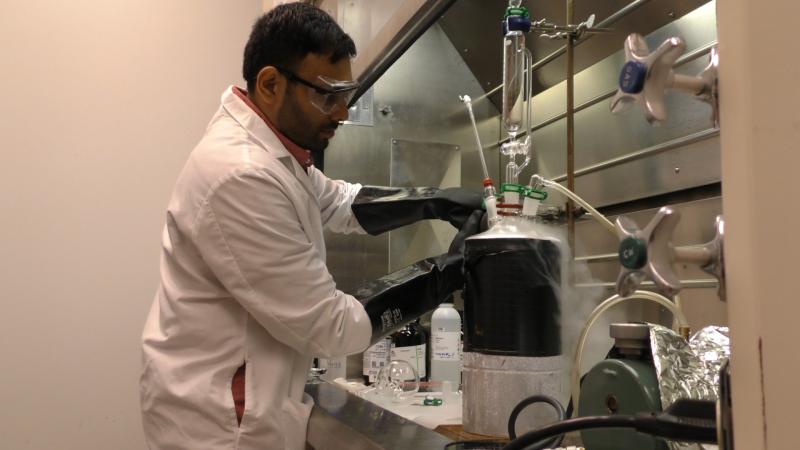October 7, 2020

With the support of a new grant from NASA, a team of engineers at Rensselaer Polytechnic Institute will continue its study of amyloid fibril formation aboard the International Space Station.
Amyloid fibrils are clusters of proteins that are linked to diseases like diabetes, Alzheimer’s, and Parkinson’s. Fluid motion in the body causes shear stress, which can increase the rate at which proteins lose their natural form and turn into fibrils, or affect how toxic protein structures are cleared away. On Earth, studying this process is complicated by the containers that are needed to hold fluid, which affect fibril formation.
Amir Hirsa, a professor of mechanical, aerospace, and nuclear engineering at Rensselaer, has developed a novel concept he calls a “ring-sheared drop,” which allows fluid dynamics to be studied without a container in a microgravity environment. He has worked with NASA to build hardware to allow this method to be deployed in space.
Last July, Hirsa and his team sent samples of human recombinant insulin protein to the ISS in order to test the ring-sheared drop hardware and to study the formation of amyloid fibrils.
This newest grant will allow the Rensselaer team to send a second set of protein samples into space to continue this nearly decade-long project. The new experiment is scheduled to be launched to the ISS sometime next year.